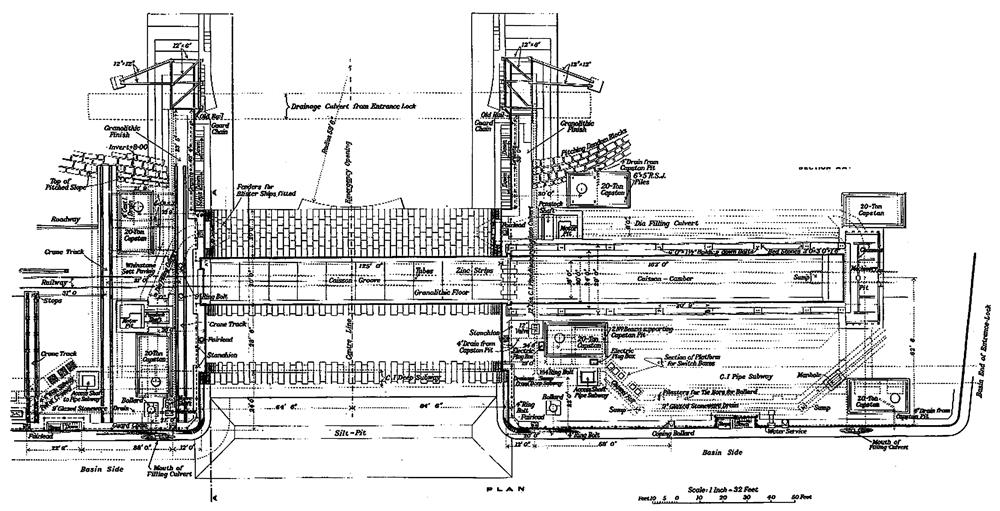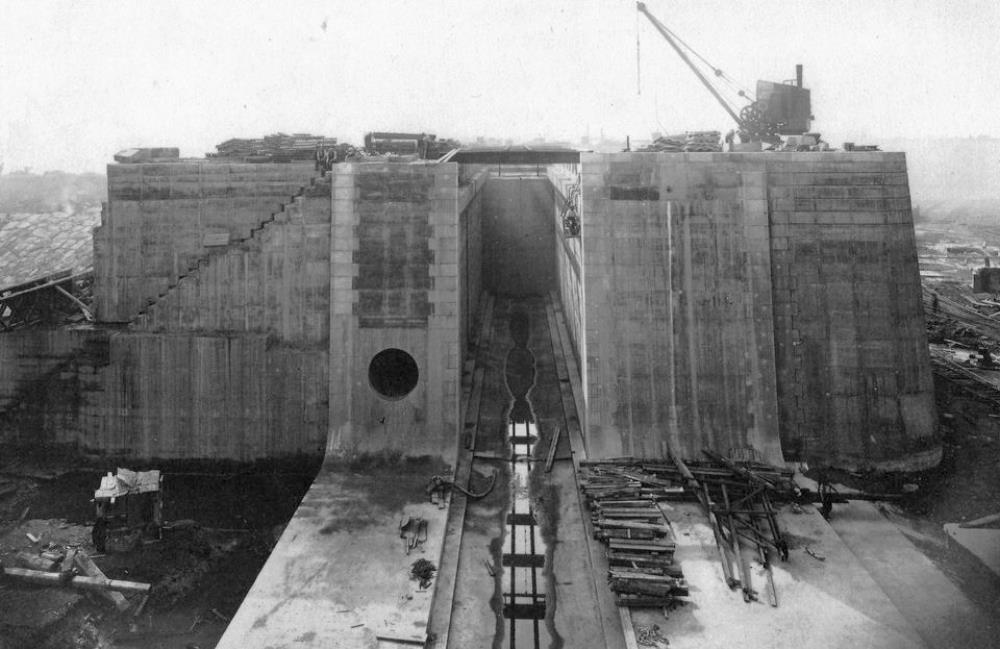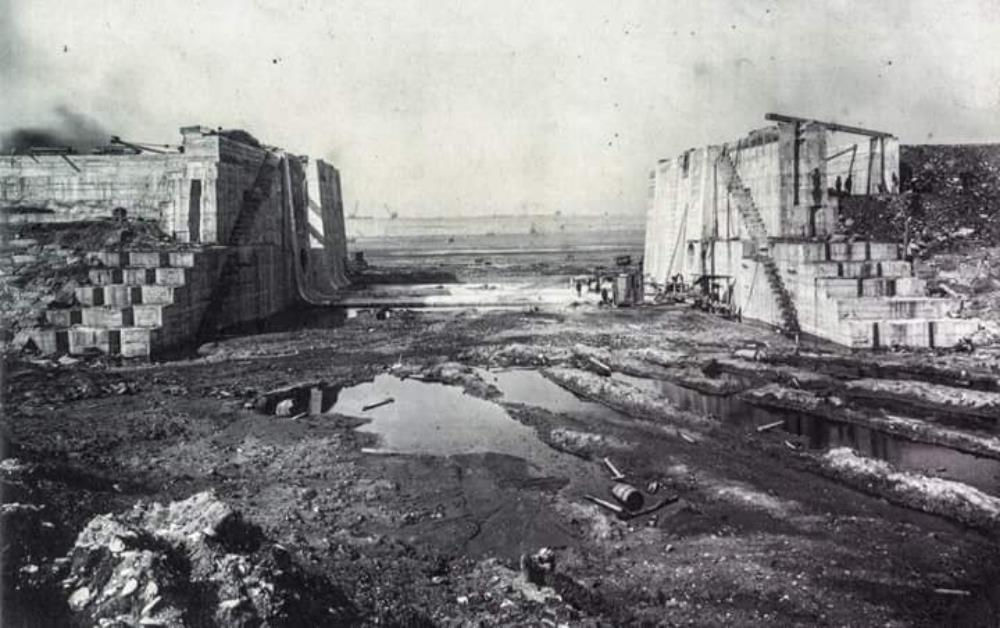14 – 1915 Completion of the Emergency Entrance
| < 13 – 1916 The Entrance Pier / Coaling Station | Δ Index | 15 – 1915 Excavating the main basin > |
If the entrance lock is damaged or being used as an emergency dry dock ships can enter and leave the inner basin at high tide by using the emergency entrance (nowadays known as the direct entrance). This is adjacent to the entrance dock and is opened and closed with a sliding caisson.
While the graving docks and the entrance locks are 110ft (33.5m) wide the emergency opening is 125ft (28m) wide. This provides a little more “wiggle room” as the entrance can only remain open for a short time around high tide.
By early 1915 the basic structure of the emergency entrance including its caisson camber was complete.
 Plan of the emergency entrance. The basin end is at the bottom and the river end at the top.
Plan of the emergency entrance. The basin end is at the bottom and the river end at the top.
 The emergency caisson camber – note the v-section silt pit on the right, and in the plan above.
The emergency caisson camber – note the v-section silt pit on the right, and in the plan above.
 The emergency entrance under construction looking into the main basin.
The emergency entrance under construction looking into the main basin.
[Note: This must be the emergency entrance because a) the caisson camber is on the left when looking into the basin and b) the sea-bed is a mixture of sand and rocks.
The graving docks all have their caisson chambers on the right as seen from inside each dock, and the floor of the entrance dock was blasted through the solid rock of Dhu Craig.]
| < 13 – 1916 The Entrance Pier / Coaling Station | Δ Index | 15 – 1915 Excavating the main basin > |
top of page
